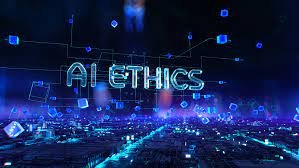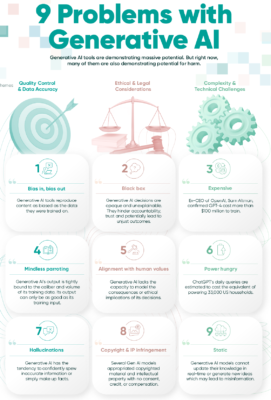AWIP, News Analysis, Science & Technology
Q. Explain the current ethical worries about deepfakes, bias and intellectual property that are related to Generative AI.
Introduction to Ethical Concerns in AI
The advancement of artificial intelligence (AI) has brought about significant technological improvements, but it also raises various ethical issues. Among these are the rise of deepfakes, inherent biases in AI systems, and questions surrounding intellectual property. Understanding these concerns is crucial for responsible AI development and deployment.
The Rise and Risk of Deepfakes
Deepfakes involve the use of AI to create highly realistic but fake videos or audio recordings. While the technology has potential applications in entertainment and education, it also poses serious ethical risks. Deepfakes can be used to spread misinformation, manipulate public opinion, or damage reputations. The ability to fabricate convincing media content challenges the trust we place in digital information, requiring robust measures to detect and mitigate their misuse.
Bias in AI Systems
Bias in AI is another significant ethical issue. AI systems learn from data, and if this data is biased, the resulting AI models will also be biased. This can lead to unfair treatment of individuals or groups, perpetuating existing inequalities. For instance, biased AI algorithms in hiring processes can disadvantage minority candidates. Addressing this requires diverse data sets and continuous monitoring to ensure fairness and inclusivity in AI applications.
Intellectual Property Concerns
Intellectual property (IP) issues related to AI are complex. AI can generate new content, designs, or inventions, raising questions about ownership and rights. Who owns the intellectual property of AI-generated works—the AI, its creator, or the end-user? Existing IP laws may need to be adapted to address these new challenges, ensuring that creators are fairly compensated while fostering innovation.
Conclusion
As AI continues to evolve, it is imperative to address these ethical concerns. Balancing innovation with ethical considerations will help in leveraging AI’s benefits while minimizing its risks. Policymakers, developers, and users must work together to create guidelines and regulations that promote responsible AI use.



